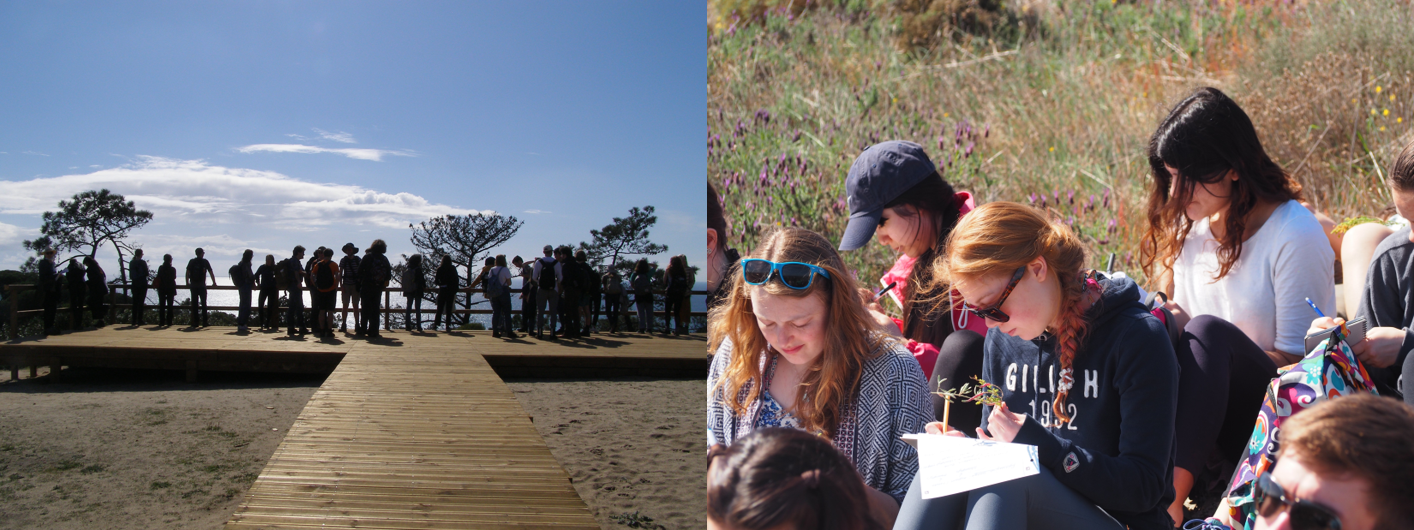
Ensuring sustainable supplies of food, fibre, pharmaceuticals, fuel and other plant and microbe-derived products requires a new generation of scientists who are able to integrate and apply knowledge ranging across multiple scales.
The IB Plant and Microbial Sciences course provides an integrated view of plant and microbial sciences that incorporates molecular, cellular and ecological approaches to this vital subject. The course focuses on the fundamental biological processes used by plants and microbes that will be required to tackle the challenges society faces.
Laboratory and field-based research are both essential for our further understanding of the function of plants and micro-organisms. The practicals supplement the lectures and help prepare students for independent project work they may undertake in Part II.
Details below cover the anticipated course delivery for academic year 2025-26.
Lectures
Lectures take place at 11am on Tuesdays, Thursdays and Saturdays in the Large Lecture Theatre at the Department of Plant Sciences.
Topics include food security and sustainable crop productivity, photosynthesis, nutrient acquisition, water relations, development, genetic tools, plant-pathogen interactions, symbiotic relationships, microbial metabolism and conservation.
Under each topic the lectures address current understanding of the relevant processes at cellular and molecular levels and explore their relevance to the major issues and ideas that arise from studying plants and microbes in the field.
Practicals
You will be assigned either Monday or Tuesday to attend your practical. Sessions run weekly from 12 noon to 5 pm (with a break for lunch) in the Department's Teaching Laboratory.
Practical sessions are grouped into 5 themes to provide an integrated understanding within different scales:
- The Molecular Techniques theme is designed to enable you to appreciate the core tools used to understand gene expression and familiarise yourself with one of the model plants, Arabidopsis thaliana.
- In the Plant Physiology practicals you investigate the impact of Rubisco antisense transformants on the growth, photosynthesis and nutrient uptake in another key model plant, tobacco (Nicotiana tabacum).
- The Microbial Pathology practicals introduce key concepts in plant pathology and microbiology including: handling and detection of oomycete, bacterial and viral pathogens; analysis of the effects of pathogens on the host plant, and advanced diagnostic methods.
- The Whole Plant theme considers the diversity of plants and their morphology within the setting of the Botanic Garden and field sites.
- The Scientific Skills theme complements the experimental strands with support for data analysis, presentation skills, essay and laboratory report writing, and reading scientific papers.
Supervisions
The Department allocates supervisors for this course from a curated in-house list of PhD students and PostDocs familiar with the course material. This ensures that all students get a plant scientist as their supervisor, regardless of the number of students at their College taking this IB option.
Evaluation
Paper 1 – three hours (40%).
- Section A (15%) - Short answer questions based on lecture material.
- Section B (25%) - Short answer questions based on practical material.
Practical write ups (10%)
Completed across Michaelmas and Lent terms. This mark is added to Paper 1 when shown on CamSIS.
Paper 2 – three hours (50%).
Candidates write four essays selected from three sections. A total of three essays from sections A & B (topic specific titles) and one from section C (synoptic essays that integrate more than one lecture block).
Careers in plant sciences
Considering Plant Sciences courses in Part IB? You might like this video from our partners, the Gatsby Plant Science Education Programme.
Plant science: from the cell to the planet
